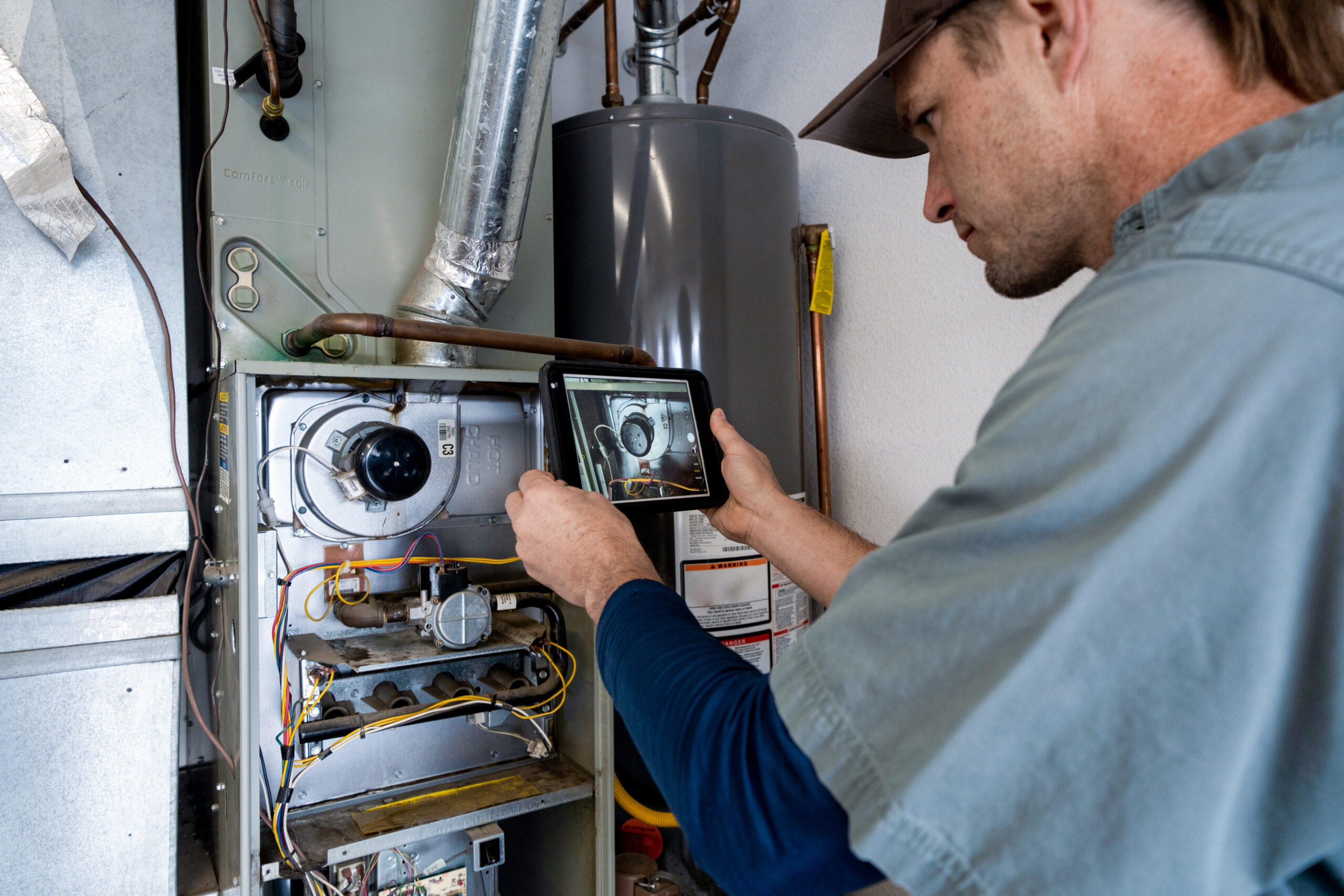
Oil heating systems have been popular among homeowners for decades. Traditionally, oil heating systems use low-viscosity grades of fuel oil or other petroleum products to power the furnaces or boilers in order to heat up residential homes. While oil is a conventionally reliable source of heating, it has disadvantages ranging from indoor air pollution to the risk of oil spills. A look at the top benefits of converting to a gas heating system can help you make the best decision for your home.
1. Increase Energy Efficiency
According to the U.S. Department of Energy, household heating systems use more energy and cost more money to operate than any of the systems in the home. In fact, heating typically accounts for around 29% of the average utility bill. For this reason, it is important to choose an energy-efficient system. Gas heating systems are more efficient than oil heating systems. This results in lower energy consumption and can reduce your utility bills. For example, high-efficiency gas units can have an Annual Fuel Utilization Efficiency (AFUE) rating of up to 98%. This means that most of the energy output goes toward heating your home instead of getting lost in the combustion process. Instead of constantly restarting the heating cycle, a gas unit can thoroughly heat your home until the next session. This also reduces potential wear and tear on your heating unit.
In addition to potential utility bill and repair savings, converting to an energy-efficient system can have economic and tax incentives as well. According to the Environmental Protection Agency (EPA), the installation of ENERGY STAR-certified gas systems with an AFUE rating of greater than 97% may qualify for federal income tax credits. State and local regulations may also offer tax credits for home improvements that increase energy efficiency. Ask your local HVAC company for help choosing the right system, and be sure to save all receipts and records of installation for tax time.
2. Reduce Dependence on Foreign Oil
Did you know that the United States is the world’s greatest producer of oil? According to the Energy Information Administration (EIA), the U.S. produces 20.30 million barrels of oil per day. However, Americans are also the world’s top consumers of oil. This means the country still relies upon other nations like Saudi Arabia for the supply of oil. About one-fourth of this foreign oil passes through the Strait of Hormuz, the sole sea passage from the Persian Gulf to the open ocean located between Iran and the United Arab Emirates. Unfortunately, instability and unrest in this region can cause major spikes in the price of oil and impact the lives of families across the world. In contrast, natural gas has a much more stable price that is much less likely to fluctuate due to geopolitics or global conflict.
3. Lower Air Pollution
Gas heating systems are more environmentally friendly than other heating options. According to the American Chemical Society, residential heating oil is a source of air pollutants like fine particulate matter, sulfur dioxide, nitrogen oxides, black carbon, and volatile organic compounds (VOCs). In addition, oil heating systems can also emit greenhouse gases like carbon dioxide. Extreme greenhouse gas emissions contribute to the depletion of the ozone layer. Fortunately, gas heating systems operate using cleaner-burning fuel. The EPA’s Clean Air Act lists propane and natural gas as fuels that can help reduce your family’s carbon footprint. Natural gas is among the cleanest fossil fuels and can help ensure that you do not cause excessive ecological harm while heating your home.
4. Save Space in the Home
Another key advantage is that gas heating systems often require less than their oil counterparts. An oil heating system requires an on-site storage tank in an accessible area of the home for regular oil deliveries. This creates a much larger physical footprint and makes oil heating less desirable for many homeowners. In contrast, gas heating systems function more like other familiar utilities. A gas heating system connects to the municipal natural gas main line. Once a utility company or service provider turns on your home service line, you can begin using natural gas directly in your home. This means that you do not need to manage a large holding tank and can instead use the pipework connected to your home.
5. Simplify Logistics and Maintenance
Oil heating systems require frequent delivery of oil fuel to the point of use within your home. In addition, residential oil heating systems require someone to monitor fuel levels and schedule these deliveries whenever necessary. This makes them more complicated than gas heating systems that use a central distribution system to distribute fuel directly from the supply lines. In addition to oil delivery for the fuel tank, oil systems also require frequent maintenance. Because oil heating releases contaminants and particulate matter during combustion, these systems are subject to clogging or oil spills if left unattended for long. Instead of worrying about messy oil maintenance, you can switch to a gas system and then schedule the standard annual or semiannual maintenance checkups as needed.
6. Boost Home Resale Value
Converting from an oil heating system to a modern gas heating system may also increase your home’s resale value. According to a report from the Department of Energy’s Office of Energy Efficiency and Renewable Energy (EERE), installing an efficient natural gas system can increase a home’s resale from 2.0%-8.0%. The resale values also increase for homeowners who have ENERGY STAR-certified units within their homes. Similarly, a study from the Department of Energy’s Lawrence Berkeley National Laboratory found that energy-efficient gas systems can provide a 60% return on investment. Switching to a new system allows you to enjoy cleaner operation and boosts your home’s appeal to potential buyers if you ever decide to put it on the market.
7. Enjoy Increased Versatility
Gas heating systems are more versatile than oil heating systems. Traditional heating oil is more of a one-job material. Many homes primarily use it for air heating and rely on other energy sources like electricity to power their appliances. But once your home has a gas hookup, you can also convert your other appliances to gas. Examples of appliances that you can convert to gas include the water heater, oven, stove, swimming pool, washer, and dryer. You can also consider replacing your wood-burning fireplace with a gas fireplace instead. Natural gas fireplaces are less expensive than constantly replacing wooden logs, and gas fireplaces also produce on average 5% more heat.
Contact Us Today
Converting from an oil heating system to a gas heating system is a viable way to upgrade your home. If you still have questions about the process, you do not have to tackle the switch alone. Beltway Air Conditioning & Heating provides residential heating services for homes in Hanover, MD and surrounding areas. We offer efficient oil-to-gas conversions as well as full maintenance. In addition, we also work with heat pumps and can provide duct inspections and duct cleaning. Whether you need carbon monoxide detectors or indoor air purifiers, our technicians are the experts for the job. Ask about our HVAC maintenance plans for loyalty credits and annual savings. No matter the job, call Beltway Air Conditioning & Heating for all your heating and cooling needs.


